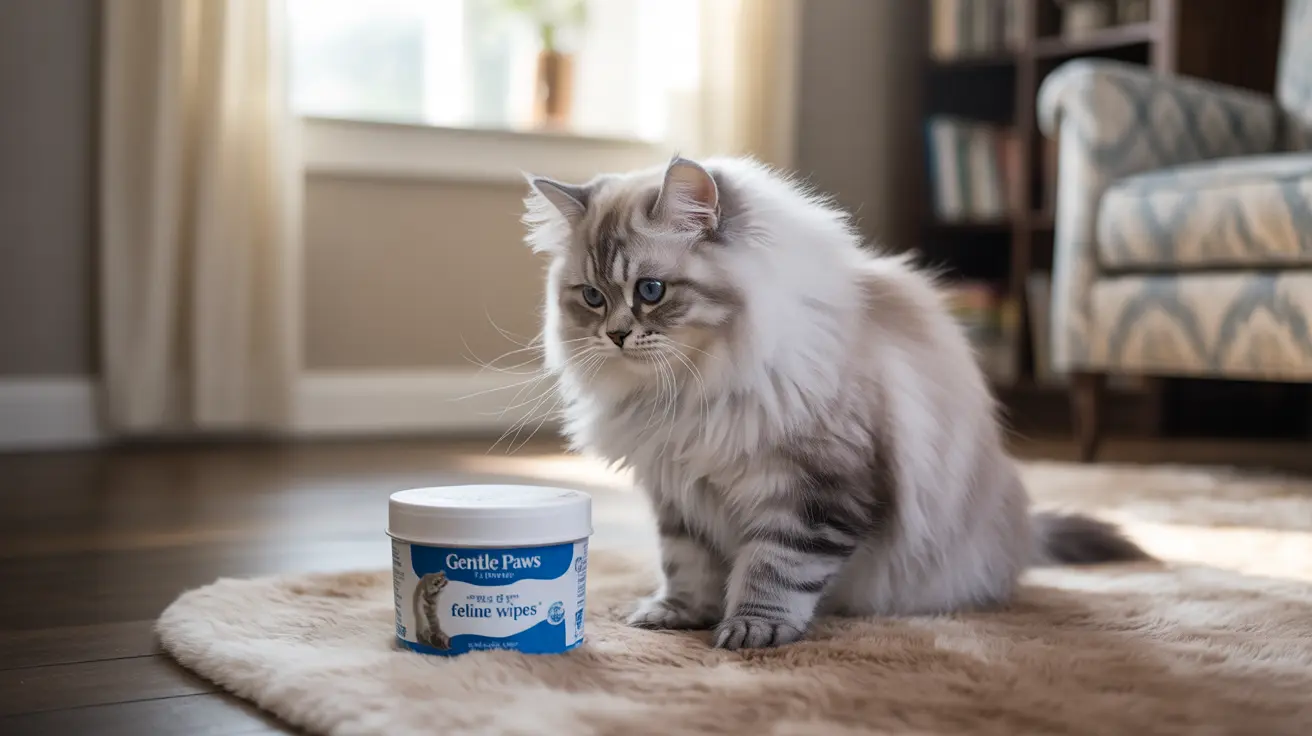Understanding the Risks of Baby Wipes for Cats
Baby wipes contain numerous chemicals that can be harmful to cats, including alcohol, fragrances, preservatives, and certain cleaning agents. While these ingredients might be safe for human babies, cats have much more sensitive skin and different physiological needs that make these products potentially dangerous.
Chemical Concerns and Toxic Ingredients
- Propylene glycol
- Parabens
- Artificial fragrances
- Alcohol-based preservatives
- Essential oils like lavender
- Aloe vera (toxic to cats)
The pH Problem
Cats have a delicate skin pH balance that differs significantly from humans. While human skin (and baby wipes) typically has a pH of 5.5-6.0, cats' skin pH ranges from 6.2-7.2. Using products not formulated for this specific pH range can disrupt their skin's natural protective barrier.
Why Cats Are Particularly Vulnerable
Several factors make cats especially susceptible to problems from baby wipes:
Grooming Behavior
- Digestive upset
- Vomiting
- Diarrhea
- More serious toxicity issues
Sensitive Skin Structure
- Chemical irritation
- Allergic reactions
- Inflammation
- Dermatitis
Safe Alternatives for Cleaning Your Cat
Instead of baby wipes, consider these veterinarian-approved options:
Pet-Specific Wipes
- Match feline skin pH
- Contain no harmful chemicals
- Are veterinarian-approved
- Use cat-safe cleaning agents
Natural Cleaning Methods
- Warm water and a soft cloth
- Pet-specific waterless shampoo
- Unscented pet cleaning wipes
- Microfiber grooming mitts
Emergency Response to Baby Wipe Exposure
- Excessive drooling
- Skin redness or irritation
- Vomiting
- Lethargy
- Changes in behavior
Contact your veterinarian immediately if you notice any of these signs.
Frequently Asked Questions
Can I safely use baby wipes to clean my cat's fur or private areas?
No, baby wipes are not safe for cats. They contain chemicals that can irritate your cat's skin and cause health issues if ingested. Use pet-specific wipes or a damp cloth instead.
What harmful ingredients in baby wipes should I avoid for my cat's skin?
Avoid products containing alcohol, fragrances, propylene glycol, parabens, essential oils, and aloe vera, as these can be harmful to cats.
What are the best alternatives to baby wipes for cleaning my cat?
The best alternatives include pet-specific wipes, warm water with a soft cloth, or cat-specific waterless shampoo products designed for feline use.
How can baby wipes affect my cat if ingested during grooming?
Ingestion of baby wipe chemicals can cause digestive upset, vomiting, diarrhea, and potentially more serious toxicity issues requiring veterinary attention.
Are unscented or "natural" baby wipes safer to use on cats?
No, even unscented or natural baby wipes can contain ingredients harmful to cats. Always use products specifically formulated for feline use.
Conclusion
While baby wipes might seem like a convenient solution for cleaning your cat, they pose significant risks to feline health. Instead, stick to pet-specific products or simple water-based cleaning methods. Your cat's safety and well-being are worth the extra consideration in choosing appropriate cleaning products.
Remember to always consult with your veterinarian before introducing any new cleaning products into your cat's grooming routine, and keep pet-specific wipes on hand for those inevitable cleanup situations.






